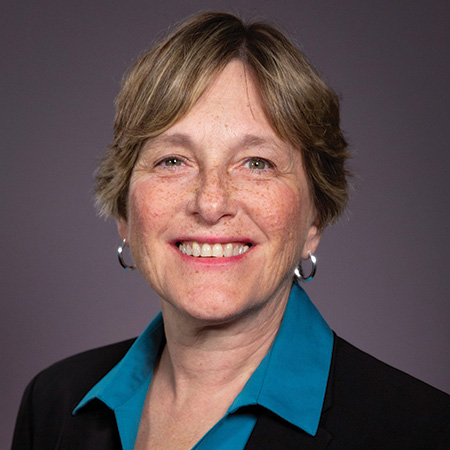Safe, Nutritious, and Sustainable
PRESIDENT’S MESSAGE
If you’re reading this, chances are you woke up this morning unconcerned about where your next meal is coming from. You likely have secure shelter, clean water, and have had access to a quality education. And you probably live in a location with a stable sanitation system, access to broadband Internet, and reasonably strong institutions and rule of law.
While the probability of these facts is high among our readers, it’s not universally true. IFT’s members are diverse in every way, including geographically and socio-economically. Some members of our science of food community live with food insecurity while working to eliminate it. Some among us lack access to clean water, quality healthcare, and reliable institutions. We are a microcosm of realities that exist in the global food system.
Nearly five years ago, IFT and its foundation, Feeding Tomorrow, articulated independent visions unified by the notion of a safe, nutritious, and sustainable food supply for everyone. We knew this wasn’t a vision that we could realize quickly or pursue alone. We believed then, and still do, that it is the power of our community of members that can make this vision a reality. We believe that the net effect of the products, services, networks, and resources we offer to members and professionals around the world will make us a better networked, more transparent, more knowledgeable community whose individual interests will enable a collective effort toward this vision. We believe that by serving you, we serve our vision. Meanwhile, we believe that many members want to give back individually, and that we should provide opportunities for members to contribute their knowledge and skills to support initiatives that benefit people at the bottom of the economic pyramid.
This approach follows the approach of the United Nations, which in 2015 adopted the UN Sustainable Development Goals (SDGs). Although the scale of their vision may be larger and broader than IFT’s, it is similarly designed to be a blueprint for connectivity across governments, institutions, communities, and problem solvers. The SDGs are open source goals that any organization, large or small, can and should attempt to examine and interpret their role in collectively pursuing.
IFT and Feeding Tomorrow are beginning to reflect on their shared vision through the lens of these goals. Like the SDGs, IFT and Feeding Tomorrow can only achieve their unified vision by understanding the intersections where food science meets with water, poverty, inequality, climate, environmental degradation, prosperity, and peace. These are enormous topics, and we are but a small piece of the problem-solving puzzle. However, our members are making key decisions about food in a changing world, having to do more with less to meet the changing demands of consumers, larger populations, a changing industry, and a global marketplace. Each one of us is working toward the sustainability of our food system.
It’s no longer enough that IFT offers you the latest consumer trends or brings you the most advanced translational research from around the world. We will continue to lead with science, and we will continue to focus on your career, your opportunities, and your goals by providing both scientific and professional skills development. Continuous learning, news, events, and networking opportunities will always be core to what we offer members. But we’ll do more, because we should, because we can, and because it is what our members expect of us.
Last year, Feeding Tomorrow arranged for five IFT professionals to participate in Unleash, a global innovation lab in Copenhagen, Denmark, which brings together young knowledge experts from around the world and from many disciplines to develop innovative and interdisciplinary approaches toward the SDGs. In addition, Feeding Tomorrow is collaborating with several international partner organizations identifying and posting volunteer opportunities for Volunteer Globally, our online platform, connecting urgent needs with food science expertise. Meanwhile, the work of IFT’s Global Food Traceability Center is collaborating with the World Wildlife Fund and the Moore Foundation to promote full-chain seafood traceability through the Global Dialogue on Seafood Traceability.
We’re still at the beginning of examining the impact that we, as a community, can have. Feeding Tomorrow and IFT, through its IFTNEXT initiative, will continue to explore ways to think about our work and our vision that bring personal and professional opportunities to our members. With your encouragement, continued membership, and commitment to be a source of working knowledge in the global food system, IFT can play a very important role in ensuring a safe, nutritious, and sustainable food supply for everyone.
 Michele Perchonok, PhD, CFS
Michele Perchonok, PhD, CFS
IFT President, 2018–2019
[email protected]
 Bernhard van Lengerich, PhD
Bernhard van Lengerich, PhD
Feeding Tomorrow Chair, 2018-2019
[email protected]


